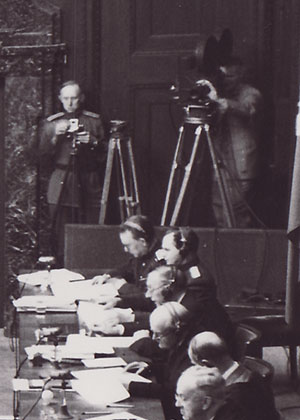Abraham H. Foxman
National Director of the Anti-Defamation League
January 10, 2011 11:56 AM
The Huffington PostWe are living at a time when conspiracy theories are flourishing. Partly this is a product of the anxieties that suffuse civilization, about the economy, about terrorism, about global warming. Partly it is a product of the Internet, where conspiracies and rumors spread like wildfire and take on an aura of authenticity.
It is likewise not surprising that in this environment, conspiracy theories about Jews are surfacing and spreading in a way that we haven't witnessed for decades. Since at the very core of anti-Semitism as a phenomenon is a conspiracy theory writ large -- Jews are not what they seem to be but are a hidden, poisonous, powerful cabal -- when conspiracy theories are broadly popular they almost inevitably end up focusing on Jews.
We have seen this process at work regarding the 9/11 terrorist attacks, the war in Iraq and, more recently, the WikiLeaks phenomenon.
Some of the conspiracy accusations are so ludicrous -- for example, the charge coming out of Egypt that a shark attack was a Mossad plant -- that it raises the question as to when such things need to be taken seriously and when they should either be ignored or parodied.
The temptation to play down some of the more outrageous accusations is undermined by the experience with two of the most dangerous and enduring ones: the denial of the Holocaust and the charge that the Mossad was behind the 9/11 attacks.
When the first efforts appeared in the 1970s to argue that the Holocaust was a fantasy concocted by Jews for a variety of nefarious purposes, the initial reaction was: who will pay attention to such nonsense? After all, even by then there were scores of books writing in detail about the horror, not to mention the Nuremberg and Eichmann trials and a variety of other documentations. And yet today,Holocaust denial has developed a life of its own, particularly in the Arab and Muslim world, but not limited to it. As absurd as the arguments by the deniers are, there is a market for such absurdities, whether to prove that Jews control all information in the world and can therefore get everyone to believe whatever they want; or to rehabilitate extreme right-wing parties who have been delegitimized by the Holocaust; or to show that the Jewish state has no moral justification. Iranian President Mahmoud Ahmadinejad is hardly alone in spouting these lies. Recently, a leading Hamas official, Mahmoud al-Zahar, shamelessly said that it is a "lie" that the Jews were victims of the Holocaust.
Similarly with regard to the 9/11 theory: When six days after the terrorist attack, Hizbullah television put out a short "news" item that 4,000 Israelis were working at the World Trade Center and none showed up for work that day, no one could have imagined how such a bold-faced fabrication would take off. After all, Israelis and Jews were among the nearly 3,000 who died that day, and Osama Bin Laden had taken credit for the attack, so who could believe that Israel was behind it all, as Hizbullah implied.
And yet, according to a Gallup poll more than a year after the event, millions of people in nine Muslim countries believed that it was Israel, not Al Qaeda, that was behind it all. This notion also continues to surface in Europe and elsewhere.
In the final analysis, while we don't have the luxury to dismiss any of these phony accusations, we need to distinguish those that are most dangerous from the others. None, in my view, is more threatening than the charge that Jews control American policy, particularly regarding the Middle East.
This notion, most prominently expressed by Professors John Mearsheimer and Stephen Walt, is in today's world the one that resonates the most, appears both in extremist and mainstream venues all over the world, and has the greatest impact on attitudes and policies toward the state of Israel and the Jewish people.
Here too, like other such theories, it is far more fantasy than a description of reality. As Edward S. Walker, a longtime State Department hand and former U.S. Ambassador to Egypt and Israel, put it, from the vantage point of decades of work in government on Middle East issues, he could not recognize how policy was actually made from the description of it by Mearsheimer and Walt.
The repeated pounding away of this message -- by the professors, by former President Jimmy Carter, by many left-wing and Muslim anti-Israel advocates in Europe, by Middle Eastern government officials, editorialists and cartoonists -- poses a threat to Jewish communities, to Israel's relations around the world, and to a rational approach to foreign policy decision-making. Much like the mother of all anti-Jewish conspiracy theories, The Protocols of the Learned Elders of Zion, if Jews have so much evil power, then anything one does to defend oneself against it is legitimate.
What to do about this proliferation of anti-Semitic theories? We must expose them for what they are. We must get good people, particularly non-Jews, to stand up. And we must deal rationally and responsibly with those global issues which create the anxiety that acts as a tail wind moving these dangerous fantasies swiftly through society.
Abraham H. Foxman,National Director of the Anti-Defamation League
Opinions expressed in articles posted do not necessarily reflect the view of CHGS but are pertinent to the debate that we at the Center are fostering.
